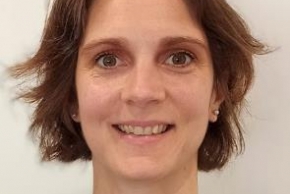Pr Emilie Genin is Professor at the Institut des Sciences Moléculaires (Université de Bordeaux, France)
Abstract
The use of light as an external stimulus is particularly attractive for many applications in biology and in materials science. Thus, fluorescent or photoactive molecular systems are very popular in these fields. In this context, we have implemented the organic synthesis of fluorescent molecules and their grafting onto surfaces to design systems used either for the detection of molecules of therapeutic interest (neurotransmitters, sugars) or as theranostics tools as well as platforms allowing the oriented covalent immobilization of biomolecules with direct visualization of the process. The synthesis of photoresponsive NLO switches and their immobilization on surfaces for applications in data storage will also be discussed.
Biography
Emilie Genin (ORCID: 0000-0002-5536-1933) is Professor at the Institute of Molecular Sciences (ISM), Bordeaux University (France). She studied at the École Normale Supérieure in Paris and obtained her PhD (awarded by the French Chemical Society – Sigma-Aldrich prize) in 2006 working on metal catalyzed organic reactions. During her post-doctoral internship at CEA Saclay, she worked at the interface between organic synthesis, luminescent nanomaterials and biology, focusing on the functionalization of Quantum Dots with organic molecules to provide nanohybrids for smart targeting of proteins. As permanent researcher since 2007, her main interests of research concern the multistep organic synthesis, including the synthesis and functionalization of chromophores, and the functionalization / elaboration of (nano)materials. Her research activities are centered on the development of photoactive and fluorescent molecular systems for applications in biology and materials sciences.
